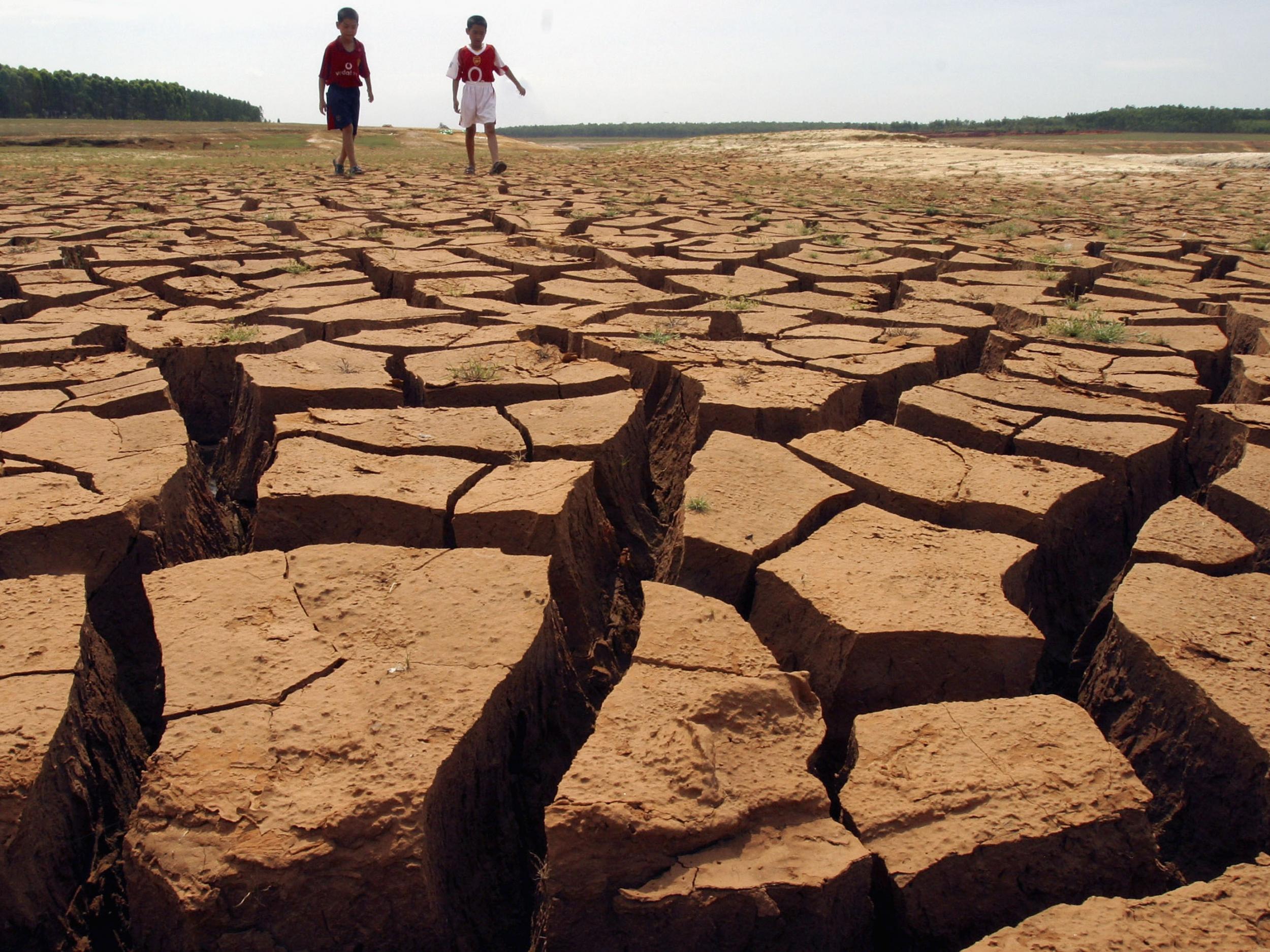More than quarter of world's land could become arid due to global warming, finds study
Widespread drying out of planet's surface will impact agriculture and increase risk of drought and wildfires

Your support helps us to tell the story
From reproductive rights to climate change to Big Tech, The Independent is on the ground when the story is developing. Whether it's investigating the financials of Elon Musk's pro-Trump PAC or producing our latest documentary, 'The A Word', which shines a light on the American women fighting for reproductive rights, we know how important it is to parse out the facts from the messaging.
At such a critical moment in US history, we need reporters on the ground. Your donation allows us to keep sending journalists to speak to both sides of the story.
The Independent is trusted by Americans across the entire political spectrum. And unlike many other quality news outlets, we choose not to lock Americans out of our reporting and analysis with paywalls. We believe quality journalism should be available to everyone, paid for by those who can afford it.
Your support makes all the difference.Up to 30 per cent of the planet’s land surface would become arid if global temperatures rise 2C above pre-industrial levels, according to a new study.
A 2C threshold was set out in the Paris climate agreement in 2015, but the new research suggests it will not be enough to prevent devastating environmental changes.
As land undergoes “aridification” and becomes drier, water supplies run out
“It can also lead to more droughts and wildfires – similar to those seen raging across California,” said SusTech scientist Dr Chang-Eui Park, first author of the study published in Nature Climate Change.
The new research involved studying projections based on existing global climate models – mathematical simulations that allow scientists to predict outcomes based on existing information.
The scientists compared the outcomes of 27 different climate models to find the areas of the world that would be hit worst by increased aridity.
Their results indicated that while the 2C target might not be enough to avert an aridification crisis, aiming for the more ambitious target of 1.5C would make a big difference.
“Our research predicts that aridification would emerge over about 20-30 per cent of the world’s land surface by the time the global mean temperature change reaches 2C,” said Dr Manoj Joshi, an environmental scientist at the University of East Anglia.
“But two thirds of the affected regions could avoid significant aridification if warming is limited to 1.5C.”
Many consider the 2C threshold to be overly ambitious, with studies suggesting a 90 per cent chance the planet will reach the mark by the end of the century.
Despite this, since the decision to aim for a 2C limit many have called for a lower threshold of 1.5C, arguing that this is the only way to avoid “severe impacts on livelihoods”.
Dr James Hansen, the so-called “father of global warming”, has stated that “the target of 2C... is a prescription for long-term disaster”.
The past century has already seen drought severity increase in places like the Mediterranean, southern Africa, and the eastern coast of Australia.
Increasingly, climate scientists are linking the severity of natural disasters like droughts and wildfires to climate change.
“The areas of the world which would most benefit from keeping warming below 1.5C are parts of South East Asia, Southern Europe, Southern Africa, Central America and Southern Australia – where more than 20 per cent of the world’s population live today,” said Professor Tim Osborn, another of the study’s authors from the University of East Anglia.
Join our commenting forum
Join thought-provoking conversations, follow other Independent readers and see their replies
Comments